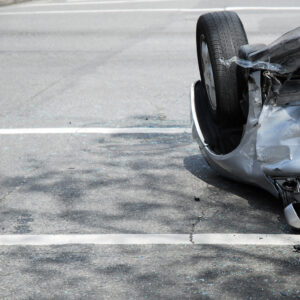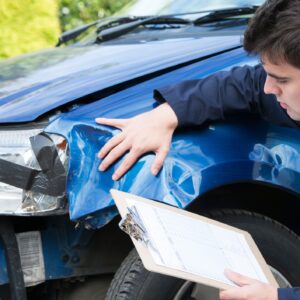
- What happens if my car is totaled and I owe more on my car loan than the car is worth?
- Can I Have My Car Repaired Where I Want?
- What If The Insurance Company Makes A Low Estimate For Property Damage?
- Can An Insurance Company Make You Use Used Parts?
- Do I Have To Fix My Car With Insurance Money?
- Speak With One Of Our Experienced California Car Accident Attorneys Now
- How Insurance Companies Decide If a Vehicle is a “Total Loss”
- What To Do After A Car Accident
- The Difference Between First-Party and Third-Party Claims
- Uninsured and Underinsured Motorist Coverage Explained
- Request A Free Auto Accident Consultation Now
What happens if my car is totaled and I owe more on my car loan than the car is worth?
If you do not have gap insurance and your car loan payoff is greater than the value of the vehicle, you will be required to pay any deficiency to your auto loan company. For example, if your car is totaled, and the insurance company determines that your car is worth $15,000 based on current used car prices, but your car loan payoff is $18,000, you would be responsible for the $3,000 difference if you do not have gap insurance. Most people who lease a car are in this negative equity position and some loan companies require the lessee to purchase gap insurance as a condition of the lease.
Can I Have My Car Repaired Where I Want?
You are free to choose the shop or dealership you want to do the work. However, the insurer owes only the going rate for repairs in your area. Therefore, if the shop or dealership you choose charges a higher labor rate, you may be required to pay the difference.
What If The Insurance Company Makes A Low Estimate For Property Damage?

If the insurance company and the shop can’t reach an agreement, it is the responsibility of the insurance company to provide the name of a repair shop that will repair your vehicle for the amount of their estimate. The repair shop the company suggests must not be an unreasonable distance from where you live.
Where additional damage is identified after the initial estimate, the insurance adjuster will provide a “supplemental” estimate to cover hidden damage, frame damage or any part price differences. The repair shop will usually work with the insurance company to reach an agreement for the supplemental work and parts.
Can An Insurance Company Make You Use Used Parts?
The insurance company owes you a repair or replacement with like kind and quality parts, not necessarily new parts. If the parts and repairs are guaranteed by the repair shop and are in the same condition as the damaged parts, they conform to the repair requirements. If you insist on certain parts, you may have to pay the additional cost.
Do I Have To Fix My Car With Insurance Money?
Companies have differing policies regarding payment of damage amounts. Your insurance company may have policy language regarding whether it is necessary to repair your vehicle or to make the draft payable to a lienholder, a body shop and/or the owner. If the other party’s company is paying, they are required to pay either the registered owner or the lien holder, or both.
A direct payment to the owner usually will not allow for any supplemental payments for additional damage. Therefore, make sure that all damage has been accounted for prior to accepting direct payment.
Speak With One Of Our Experienced California Car Accident Attorneys Now

After a car accident, you may have many questions and may be uncertain how to proceed with your auto accident claim. That’s why we’re here. Call us and we can provide a free evaluation of your case, and advise you of your right to compensation. Don’t wait to get answers. Call us now at 1-800-718-4658 to speak with a car accident specialist.
How Insurance Companies Decide If a Vehicle is a “Total Loss”
You may have heard about a car being “totaled” after an accident. This is a slang reference to “total loss,” meaning the vehicle is not worth fixing. This, of course, may have very different meanings to the car owner and the insurance company. A car owner may argue that a car that starts each morning, gets them where they want to go, and rarely requires repairs, is worth its weight in gold. An insurance company, however, won’t see it that way.
Insuring vehicles is a business like any other. An insurance company will determine the value of the vehicle and balance that against the damage that must be repaired. The insurance company will also take other costs into account, such as the cost of salvaging the vehicle, transferring the title from the owner’s name with the Department of Motor Vehicles, and the like.
Obviously, if the Blue Book value of the car is $3,000, and the repairs are $7,000, the car will be totaled. However, less obviously, if the car is valued at $3,000, and the repairs are $2500, the car may still be totaled, because when coupled with the associated costs of totaling the vehicle, the cost to the insurance company is greater than simply writing a check for $3,000.
The Blue Book value of a car is not always what insurance companies rely on in doing the cost-benefit analysis. If your vehicle was previously salvaged or had a “salvage title,” the value of your vehicle will be less than the value of a car that doesn’t have a salvage title, even if they are the same make, model, and year.
What To Do After A Car Accident
Before you speak with the insurance company, call Nadrich Accident Injury Lawyers to speak with a California car accident lawyer. One of our attorneys can provide you with a free case evaluation. We can advise you of what insurance coverage may be available to you and advise you of your legal options. Call 1-800-718-4658 now for a free and confidential assessment of your case.
What is a third party in an insurance claim?
The Difference Between First-Party and Third-Party Claims
When you have been in a car accident, odds are you will be looking to an insurance company to compensate for your claims. Which insurance company pays your claim depends on the facts and circumstances of your individual case. For example, if you lose control of your car, and you crash into another car, or into a guardrail, for example, you will be seeking to recover your property damage loss from your insurance company. This is called a first-party claim. If someone else loses control of their car and crashes into your car, you will be seeking to recover your property damage loss from their insurance company. This is called a third-party claim.
Uninsured and Underinsured Motorist Coverage Explained

In the state of California, all drivers are required to carry minimum liability insurance on their vehicles to cover property damage they may cause to others’ property. Unfortunately, not all drivers follow the law, and you may find yourself in a situation where the other driver, who was at fault, does not have insurance.
Alternatively, you may find that the other driver had insurance coverage, but it is not enough to cover the total cost of the damages you have incurred. This is especially true in cases where your vehicle is determined a “total loss.”
In these cases, your uninsured and underinsured motorist coverage can cover excess property damage. But this is true only if you have uninsured/underinsured motorist coverage. Understand that it is not part of the standard car insurance package you purchase in order to be a law-abiding citizen.
However, you can buy uninsured and underinsured motorist coverage from your insurance company as an add-on. This type of insurance can be critical if you are hit by an uninsured or underinsured driver. This insurance can help cover the difference not only if you are in your car, but also if you are on a bike, motorcycle, etc.
Request A Free Auto Accident Consultation Now
Nadrich Accident Injury Lawyers has successfully handled thousands of auto accident claims over the last 27 years. We know what it takes to get maximum value for a personal injury claim. If you or a loved one has been injured in a car accident, contact us now at 1-800-718-4658 for a free, no-pressure consultation.

